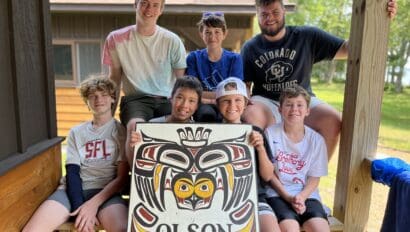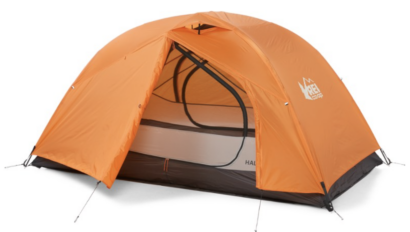Now that the summer is over and the school year is upon us, time away from Cass Lake brings the joys of Camp Chippewa into sharper relief. Gone are the mosquito bites and sore backs after a day in the woods or on the water, replaced instead by feelings of nostalgia and longing for the friendships put on pause until summer. This time away from Camp gives us perspective to consider the place of summer camp in our lives. Is a summer better spent in a cabin than a bedroom? What about a tent? Is a summer better spent with the marvels of the internet within reach? Or is it better if we logout of Netflix and Snapchat for four weeks?
 More and more are reaching the consensus that yes, let’s say goodbye to the smartphone, and hello to the woods. In her book Happy Campers, Audrey Monke draws upon her own experiences as a mother and camp director of more than 30 years, as well as current psychological research to proclaim that summer camps are giving children exactly what they need to grow, flourish—and in an immediate sense—live happily in the present the way young people should. Happy Campers does an excellent job of relating the joys and lasting benefits of summer camp to parents. We cannot recommend the book enough, and will be sharing more in the coming months. The first chapter of Happy Campers dives into the profound positive effects that connection has.
More and more are reaching the consensus that yes, let’s say goodbye to the smartphone, and hello to the woods. In her book Happy Campers, Audrey Monke draws upon her own experiences as a mother and camp director of more than 30 years, as well as current psychological research to proclaim that summer camps are giving children exactly what they need to grow, flourish—and in an immediate sense—live happily in the present the way young people should. Happy Campers does an excellent job of relating the joys and lasting benefits of summer camp to parents. We cannot recommend the book enough, and will be sharing more in the coming months. The first chapter of Happy Campers dives into the profound positive effects that connection has.
 When Monke talks about connection, she means positive, secure, face-to-face relationships. At Camp Chippewa, cabin groups are the same throughout the summer, with a group of boys and two counselors working toward common goals and sharing adventures for four weeks. This continuity is heightened by out-of-camp trips, outdoor journeys, starry skies, and evenings spent together around the campfire leading to lifelong friendships. While the program and canoe trips are Chippewa’s backbone, the friendships are its lifeblood. It is no surprise that many highlights shared around the final campfire are focused on the friendships campers have developed at Chippewa.
When Monke talks about connection, she means positive, secure, face-to-face relationships. At Camp Chippewa, cabin groups are the same throughout the summer, with a group of boys and two counselors working toward common goals and sharing adventures for four weeks. This continuity is heightened by out-of-camp trips, outdoor journeys, starry skies, and evenings spent together around the campfire leading to lifelong friendships. While the program and canoe trips are Chippewa’s backbone, the friendships are its lifeblood. It is no surprise that many highlights shared around the final campfire are focused on the friendships campers have developed at Chippewa.
Psychologist Mark Seligman has professed the widespread benefits of connection in his book Flourish: A Visionary New Understanding of Happiness and Well-Being.
“Very little that is positive is solitary. When was the last time you laughed uproariously? The last time you felt indescribable joy? The last time you sensed profound meaning and purpose? The last time you felt enormously proud of an accomplishment? Even without knowing the particulars of these high points of your life, I know their form: all of them took place around other people.” -Martin Seligman
The relationships built at camp are also magnified by something that is missing: screens. Not the ones on the cabin windows letting in the sound of waves on the shore and wind in the trees (and keeping the mosquitos out), but the ones that seem to be surrounding us at all times—phones, computers, tablets and televisions. The effects of this technology are profound, but one key aspect of this phenomenon is that of isolation. Increasing smartphone use has a causal relationship with mental and behavioral illnesses in adolescents. And we are still learning just how else smartphones and social media are affecting all of us. But at camp, online relationships are replaced by real ones.
“One of the reasons kids feel such a sense of connection at camp is, ironically, that they are disconnected from technology.” -Audrey Monke

As time, technology and young people change, Camp Chippewa has stayed the same in delivering a haven where campers live in a community that is free from their phones, and based in connection and shared experience – and the lasting benefits therein.
For more on the positive effects of connection at summer camp, read Audrey Monke’s Happy Campers.


